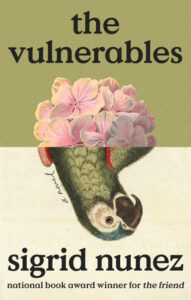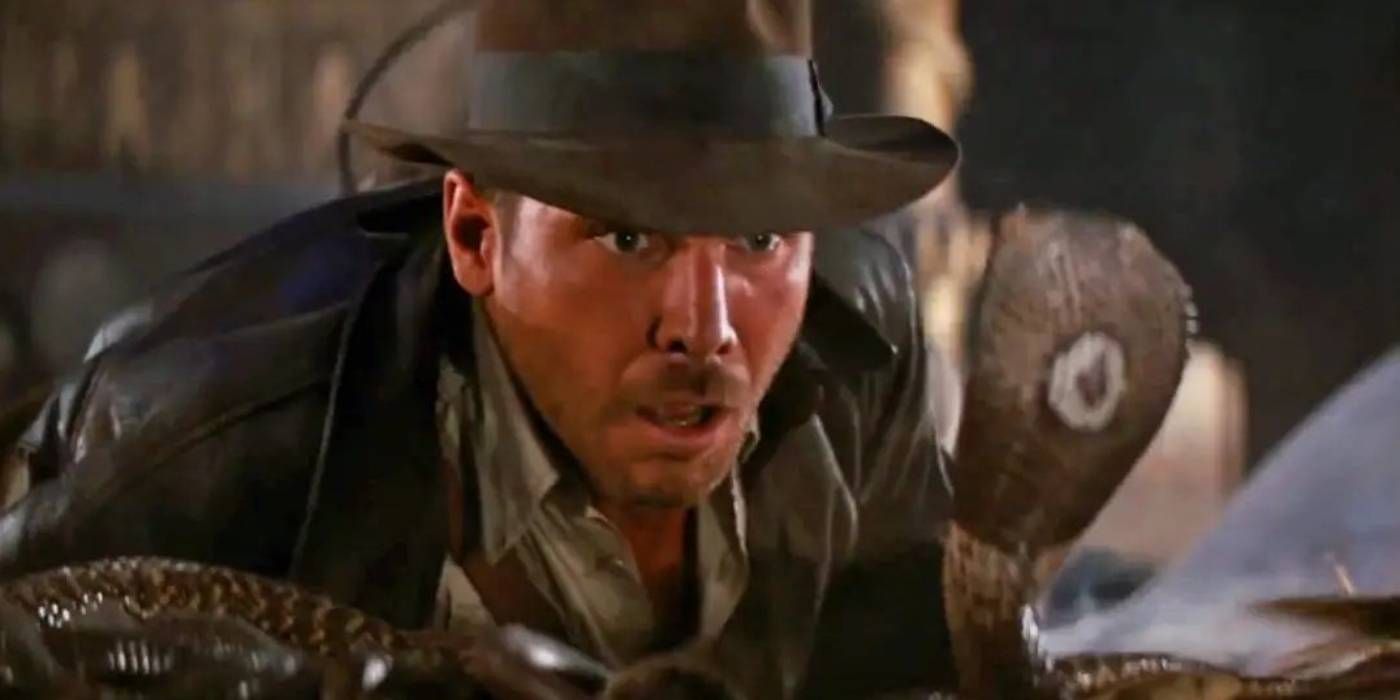Sigrid Nunez opens her ninth novel with the first line in Virginia Woolf’s The Years: “It was an uncertain spring.” Not surprisingly, given the rigor with which Nunez approaches language, it’s an acutely accurate description of the early pandemic months in New York City she describes in The Vulnerables, when it wasn’t clear how COVID-19 originated, how it spread, and how to protect yourself. Later she nails it again: “…and weren’t we all sick of hearing it: uncertainty was the only uncertainty to be had.” The Vulnerables, which follows the 2018 National Book Award-winning The Friend and What Are You Going Through (2020), is Nunez’s ode to this strange historic moment—to survival, community, random connection, and even isolation. “…I couldn’t help feeling guilty about the pleasure I took in the lifeless streets,” she writes. “To be the only pedestrian for blocks, to have an acre of Central Park to yourself.”
How did the pandemic affect the writing of The Vulnerables? I asked Nunez via email, each of us on a different coast. “Like so many other writers, at the outbreak of Covid and in the early days of lockdown—not to mention the ongoing mad, bad behavior of our political leadership—I was too stunned to get much writing done,” she responded. “I did manage to finish a long review essay. Then it came time for the annual spring faculty reading at BU, where I’d been teaching. That year or course it was on Zoom. Each of us was asked to read briefly and I decided to write something new just for the reading. So I began writing about was happening right at that moment—to me, to all of us—and sometime later I took those pages and went on writing, and that turned into The Vulnerables. I finished it before showing it to anyone. I was particularly pleased that my agent and my editor and other people who’ve read the book so far have appreciated the humor in the novel. You’re always worried that what you find funny might fall flat for other people.”
*
Jane Ciabattari: You also wrote about a pandemic in your 2010 novel Salvation City. Were you influenced by earlier authors who wrote about the plagues/pandemics of their time, like Katherine Anne Porter, whose Pale Horse, Pale Rider is drawn from her own experience surviving the Spanish flu of 1918?
I wanted to imagine what a crisis of that magnitude might be like in a polarized and in so many ways dysfunctional country like the US.
Sigrid Nunez: With Salvation City, I’d known for a long time that another pandemic like the Great Flu of 1918 was—according to Dr. Fauci and other experts—not a question of if but when. I thought it was more than likely that a global pandemic would occur during my lifetime. I wanted to imagine what a crisis of that magnitude might be like in a polarized and in so many ways dysfunctional country like the US. Also, I knew that many children were orphaned during the Great Flu, the writer Mary McCarthy among them. William Maxwell lost his mother then and never got over it. I wanted to imagine what it would be like for a kid to lose both parents after becoming extremely ill himself. I also write about the effects of global warming in Salvation City. As it turns out, many things that I describe in that book actually came to pass with Covid. In my book, the president of the United States is just one of millions who are infected, as of course happened to Trump. But in my book, I made the president a woman.
JC: During the pandemic in The Vulnerables, as in “real life,” older people began to be separated out, considered more “vulnerable.” As a friend who recommends your narrator stay home tells her, “You’re a vulnerable…and you need to act like one.” How do you feel about this latest social categorization? What else inspired your title?
SN: I don’t think of it as a social categorization. It’s a medical categorization. There are groups of people, among them older people and people with compromised immune systems, who’ve been warned to take greater precautions against getting infected. It’s a matter of risk factors, like people with a history, or family history, of skin cancer being advised to take extra precautions against sun exposure. “Separated out” makes it seem as if some stigma has been attached to the categorization, which isn’t the case. There wasn’t any other inspiration for the title.
JC: You bookend this novel with references to Virginia Woolf. Your opening line is from The Years. Near the end you quote Woolf again, in reference to The Waves. “Autobiography it might be called,” she wrote when she first began planning the novel, written “to a rhythm not a plot.” How has Woolf inspired your work? And this novel?
SN: I’ve read all Woolf’s work, most of it more than once, and although my writing isn’t anything like hers she certainly has been a major influence—not just through her writing but her thinking about writing and about reading and the writer’s life, all of which can be found in her letters and diaries and literary criticism. I started reading her when I was in college and I admired her so greatly that for years everything I wrote was bad Virginia Woolf. During the lockdown, when I sat down to write something new, that first sentence popped into my head. And of course it was a sentence that described precisely our own spring of 2020.
JC: Did you really forget about a V. Woolf story about a woman and a parrot named James? First published by her two young nephews for their daily family newspaper?
SN: I did, and I decided to give that same memory lapse to the book’s narrator. A student gave me a copy of Woolf’s book, The Widow and the Parrot, many years ago, and one day as I was nearing the end of writing The Vulnerables it caught my eye on the bookshelf.
JC: You make reference to so many iconic writers and their books throughout The Vulnerables, it’s like having an ongoing conversation with an erudite and passionate author/professor, which you are. Proust, Annie Ernaux, Georges Perec, Elizabeth Bishop, Joan Didion, Faulkner, Brian Moore, Oscar Wilde, R.P.Blackmur and so many more. Were these the authors you were drawn to during the pandemic? Do you have a process by which you weave cultural commentary into the scenes, or does it come organically?
SN: Whenever I make a reference to any writer or literary work, it’s because I happened to think of that writer or work in the course of my own writing. So no, I didn’t think of any of these particular writers because of the pandemic. And I don’t have any special process for weaving commentary in. Certain things will occur to me and I’ll think, This would fit well here in my narrative and I should include it.
JC: You write, “Only when I was young did I believe that it was important to remember what happened in every novel I read. Now I know the truth: what matters is what you experience while reading, the stages of feeling that the story evokes, the questions that rise to your mind, rather than the fictional events described.” Is this your treatise for The Vulnerables, which captures the feelings of the early pandemic, the memories and brain fog, the isolation and odd new interactions (being scolded by the barista at a familiar coffee shop for touching the counter), the unexpected alliances?
SN: Not really. I think it’s an interesting observation about reading in general, but I didn’t mean to suggest that this was how I wanted or expected readers to approach my novel.
Though everything else in life was abnormal during that time, the writing process was pretty much the same as always.
JC: Your narrator gives us a chain of memories that amount to a memoir of her attitudes toward love, beginning with the twelve-or thirteen-year-old classmate Charles, who follows her home from school and wants to see her (she refuses, against her mother’s advice). Her insistence upon independence, her willingness to be solitary, define her. To what extent do you think her generation’s opportunities made her life possible?
SN: I don’t think her attitude toward love or her desire for independence and willingness to be solitary have anything to do with her generation’s opportunities but rather simply with her desire to be a writer. Many writers of generations past have felt similarly—women writers in particular. But in the case of Charles, of course, this is a boy she isn’t at all attracted to. If she had been, chances are she would not have been put off by his crush on her.
JC: Early in the book, just before lockdown, the narrator reunites with a group of friends at a funeral for Lily, “The first one of us to get married. The first to have a baby. The first to die.” Their reminiscences cover their college years and “youth” cover the love stories of a generation new to the birth control pill and sexual “freedom.” Which leads to a series of memories. Does the isolation of the pandemic give your narrator more time to focus on her past?
SN: Yes, but I would say her age—she’s in her sixties—has even more to do with that focus. I don’t imagine younger people in isolation, college kids, say, were looking back at their high school years or childhoods. I think they were quite painfully focused on the present, and all that they were missing.
JC: The narrator breaks her isolation by helping out friends (or friends of friends) in need. At the request of Iris, an author of her editor friend Violet, the narrator moves into an apartment uptown to bird-sit Eureka, a parrot, who is “[a]ll green except for a dab of scarlet on each shoulder and white patches around his eyes.” She tends to Eureka in his specially built room. She lets a doctor, another friend of a friend, stay in her apartment, leaving her committed to the temporary place. And then a college dropout vegan she names Vetch who ghosted Eureka returns (he kept a key). Again, I’m reminded of Woolf. Your “plot” unfolds by a rhythm of unexpected encounters, a way of interacting that became part of the COVID world. Erratic, uncertain, sometimes oddly joyous. Is that how it felt to you as you were working on The Vulnerables?
SN: I’d say that’s a good description, but in fact it describes the way I’ve felt writing each of my novels. Though everything else in life was abnormal during that time, the writing process was pretty much the same as always.
JC: Vetch suffers from “Intermittent Explosive Disorder” (I.E.D.); his mother has written about this in her memoir, edited by Violet. How did you learn about this disorder?
SN: I can’t recall exactly, but it’s something I’ve known about for some time. And I’ve known people who’ve suffered from it all my life.
JC: What are you working on now/next?
SN: I’m working on a long review essay. I have no idea what I’m going to do next.
__________________________________

The Vulnerables by Sigrid Nunez is available from Riverhead Books, an imprint of Penguin Publishing Group, a division of Penguin Random House, LLC.


























































